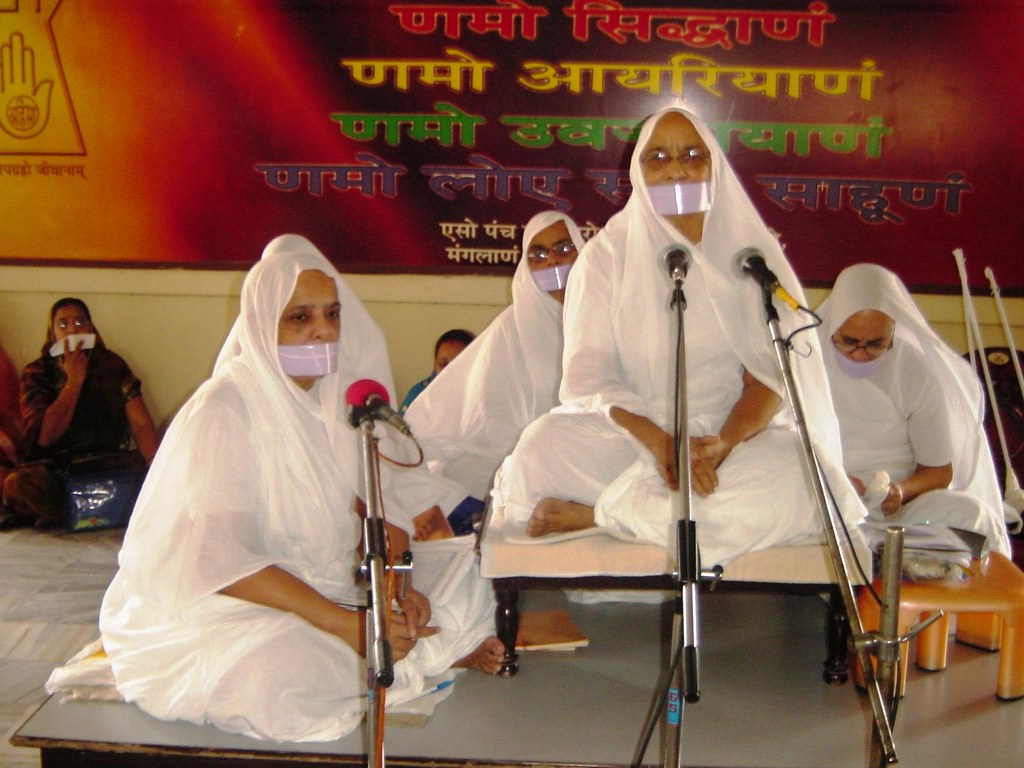 Sadhvi kanak shri addressing the lay followers -view 2
Sadhvi kanak shri addressing the lay followers -view 2
Mother not only gives birth to a child but also nurtures the child with etiquettes
- Sadhvi Kanak Shri.
21.08.2009. On the fifth day of Paryushan Mahaparva organized by Shree Jain Swetamber Terapanthi Sabha, Kolkata at “Pragya Samavsaran”, Kolkata Mahasabha, and celebrated as ANUVRAT CHETNA DIWAS, Sadhvi Kanak Shri ji, a learned disciple of Acharya Shri Mahapragya ji, the known initiator of Ahimsa Yatra, amidst the presence of thousands of lay followers (Shrawaks and Shrawikas) said - “only a great mother by giving birth to a great personage can take maternity to the heights of greatness. A mother before giving birth to a child possessing great prowess has to endure all the pains and needs to live a devoted patient’s life, practice continence, purify emotions, because a mother not only gives birth to a child but also up bring the child with etiquettes, injects virtues in the child. That is why a mother is also known as a creator of virtues, values, etiquettes with all round development viz. physical, mental and emotional.
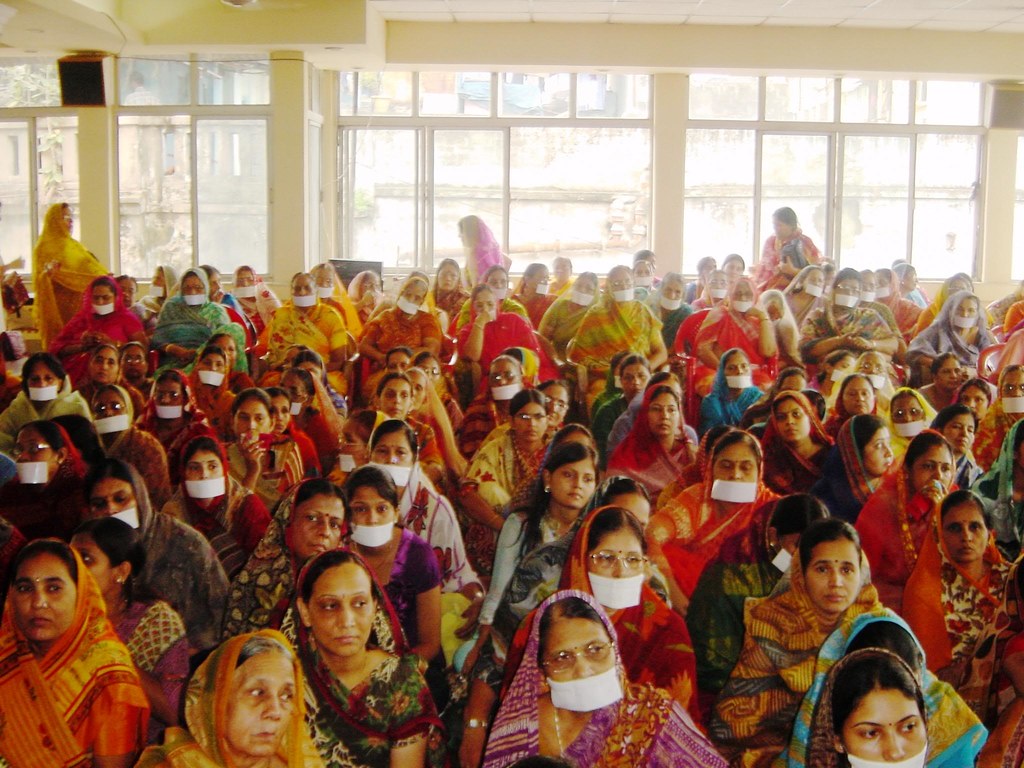 Lay followers-view 10
Lay followers-view 10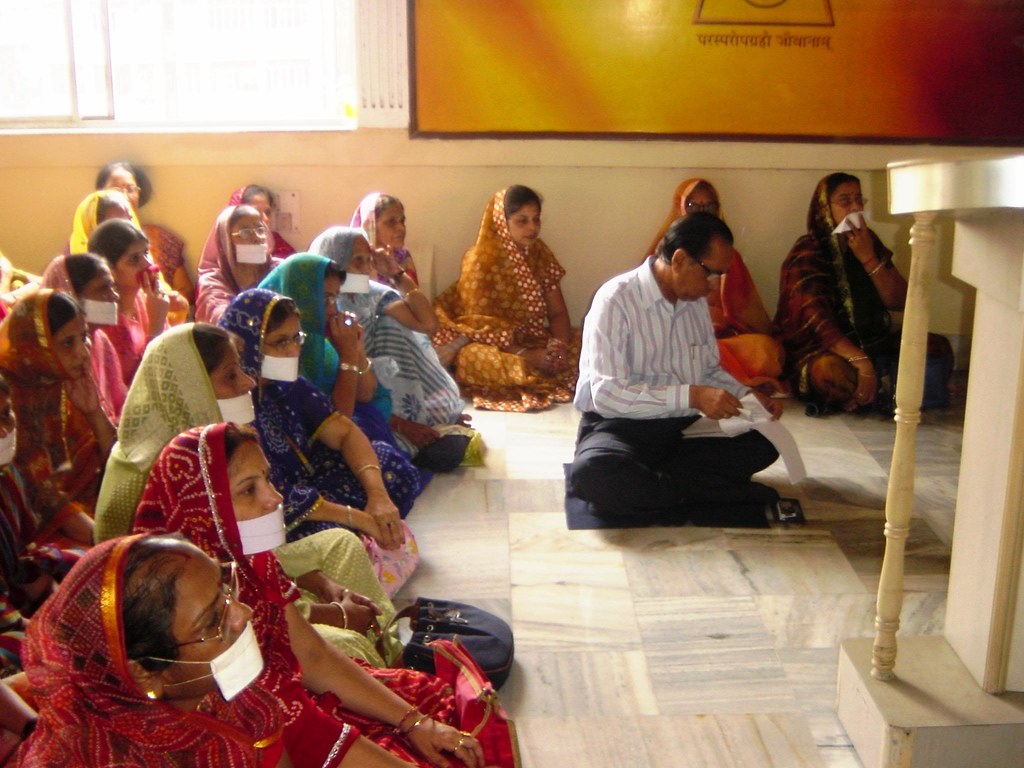 Sri bhanwarlal singhi and lay followers
Sri bhanwarlal singhi and lay followers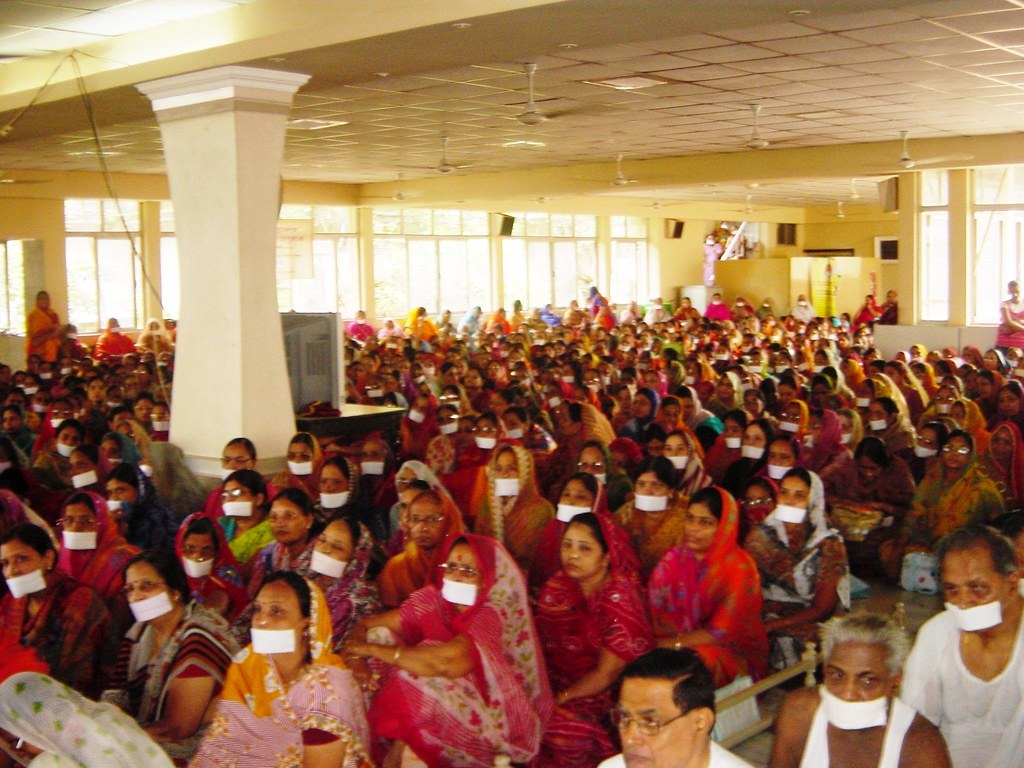 Lay followers-view 11
Lay followers-view 11With reference to Lord Mahavira’s Divine birth, addressing Trishla, mother of Lord Mahavira as a great mother, Sadhvi Kanak shri ji enlightened the gathering and said “just as faint parents can’t give birth to a healthy child in the same way parents who lack the qualities of high thinking, good behavior and etiquettes cannot enlighten their children with the same.”
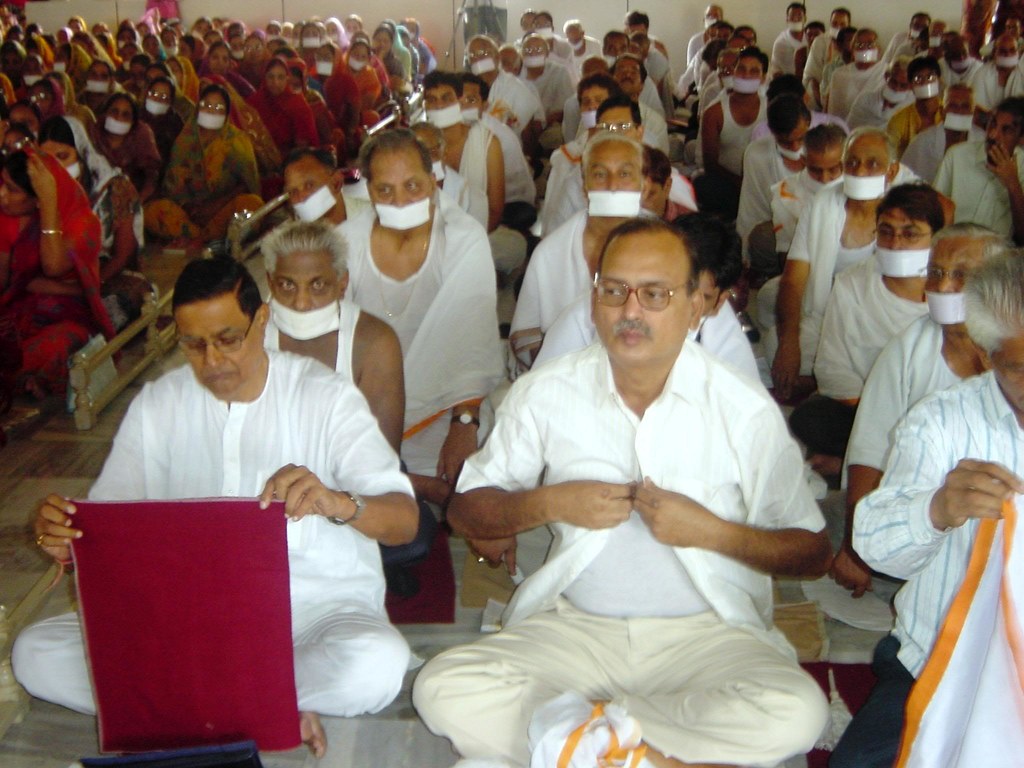 Kolkata sabha vice president sri rajendra pugalia and other layfollowers after performing samayik
Kolkata sabha vice president sri rajendra pugalia and other layfollowers after performing samayik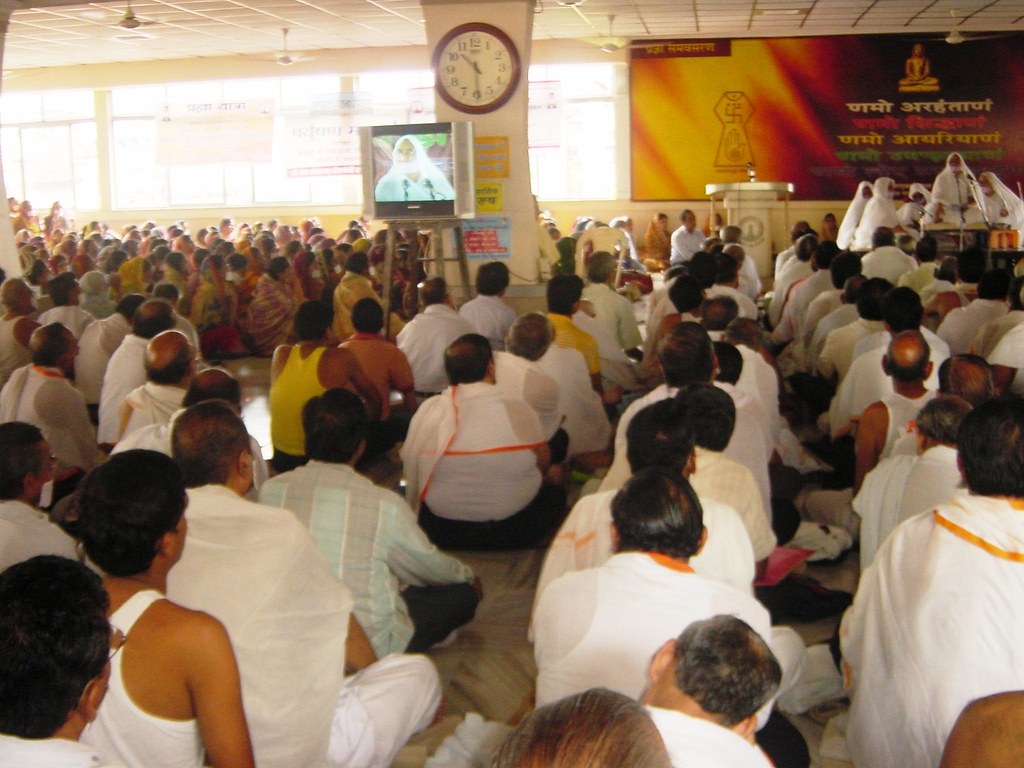 Lay followers-view 6
Lay followers-view 6Ascertaining the psychological point of view of the austerity life led by Mother Trishla, Sadhvisri ji further said “an unborn child in pregnant mother’s womb is greatly influenced by the living, eating, sleeping, drinking & thinking habits of the mother.” The extent to which a mother leads a life of austerity, simplicity and high thinking during such period, the more the child is capable and skilled.”
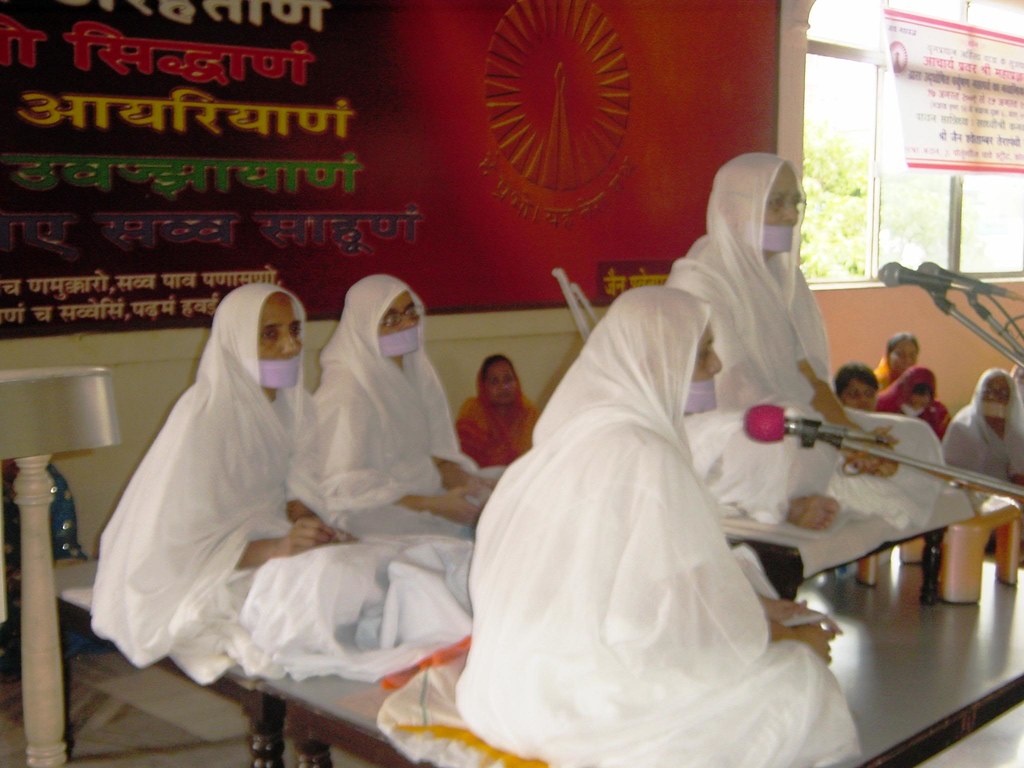 Sadhvi kanak shri addressing the lay followers -view 3
Sadhvi kanak shri addressing the lay followers -view 3
Giving a strong jerk to the mind of the listeners by way of an influencing speech, Sadhvi Kanak shri ji continued - “Nowadays crafts classes are going on in the metro cities for mothers to learn the ways of upbringing of a child, where woman from high societies come to learn the art of nourishment and upbringing of a child. For them the tips available in the Jain literature are of much importance to be considered.”
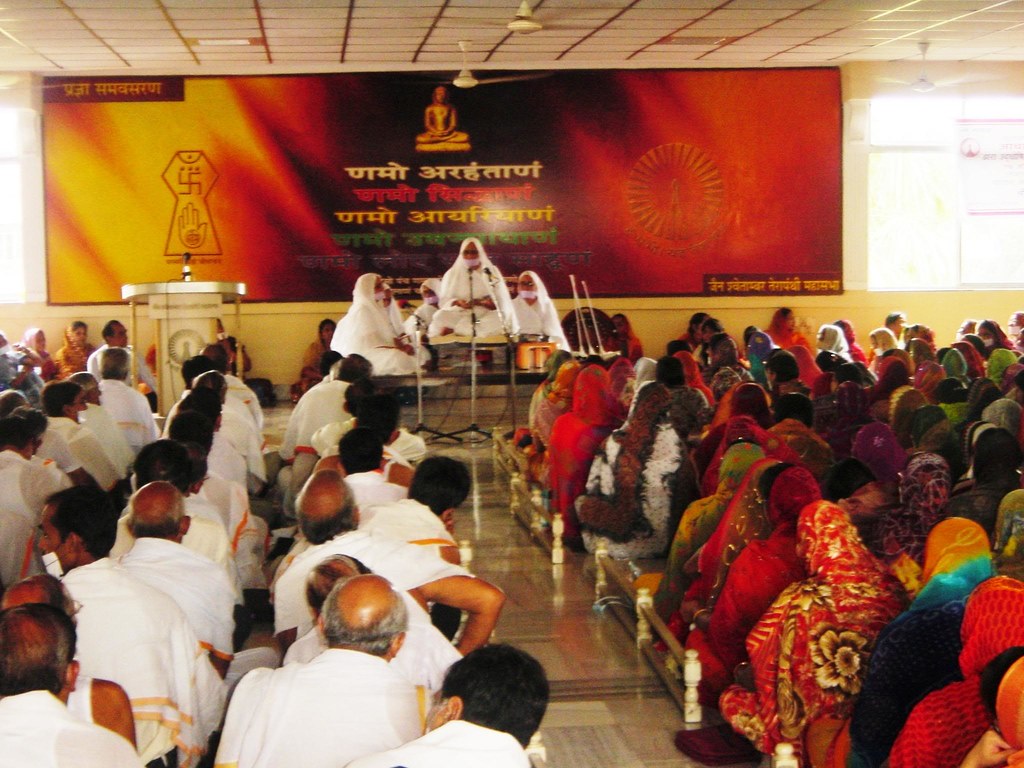 Sadhhvi kanak shri and the shrawaks/Shrawikas
Sadhhvi kanak shri and the shrawaks/Shrawikas
With reference to Anuvrat chetna divas & inspiring to be conscious about consciousness of continence and patience, Sadhvi shri Kanak shri ji said “the principle of Anuvrat is sanyam (Continence) that is being self restraint and Patient and a life with these principles develops morality and adds values in one’s life. This is life in true sense. ‘Anuvrat Movement’ emphasizes the importance of character building, purification of life, development of willpower & self-realisation. It was launched with the object of character building by Ganadhipati Acharya Shree Tulsi, in 1949 A.D. at Sardarshahar (in Rajasthan). Acharya Tulsi had great concern over the moral building of the nation. This movement is now on the way to become a huge flourishing tree.
Addressing the lay followers on the occasion of Anuvrat Chetna Diwas, Sadhvi Madhulata ji Said - “The Paryushan festival is festival of self restraint and self control Anuvrat is a code of conduct of non-violence, of non-sectarian religion or universal religion. Anuvrat is a sacred resolve to give up violence and adopt non-violence & the just principle of transforming the individual & society in a good resolve. The Anuvrat is a religion free from sectarianism. It is a project for the spiritual and moral rejuvenation of life, aiming at the total good of a person. It helps makes a man a ‘human’ in real sense. Inculcation of Right Faith, Right Resolve & Right Conduct is the philosophy of the Anuvrat. The removal of discrepancy between precept & practice is its objective. Anuvrat means ‘little vow’ which are for lay people, living family lives. The code of conduct of ANUVRAT is so formed that it is not restricted to a particular community, caste or creed, instead has a universal applicability. She emphasized that for building a healthy and moral society and nation Anuvrat is unputdownable.”
On this occasion, Sri Bhawarlal Singhi said, although Anuvrat is a small & simple word but has huge capability of creativity in itself. Its objective and codes are very simple, useful as well as universal. He appealed the shrawaks and shrawikas of greater Kolkata on behalf of Kolkata Terapanthi Sabha to come forward and actively participate with the Sabha in celebrating the great festival.
The regular evening Pratikraman was attended by over 500 lay followers. It was guided by Sri Naresh Nahata and Upashika Smt. Vijay Laxmi Manot. The South Howrah Terapanthi Sabha members with great enthusiasm, headed by Sri Janwarilal Nahata (President),Sri Prakash Chand Maloo (Vice–President),Sri Bajrang Daga (Treasurer) participated in the uninterrupted Namokar Mantra chanting in the night.
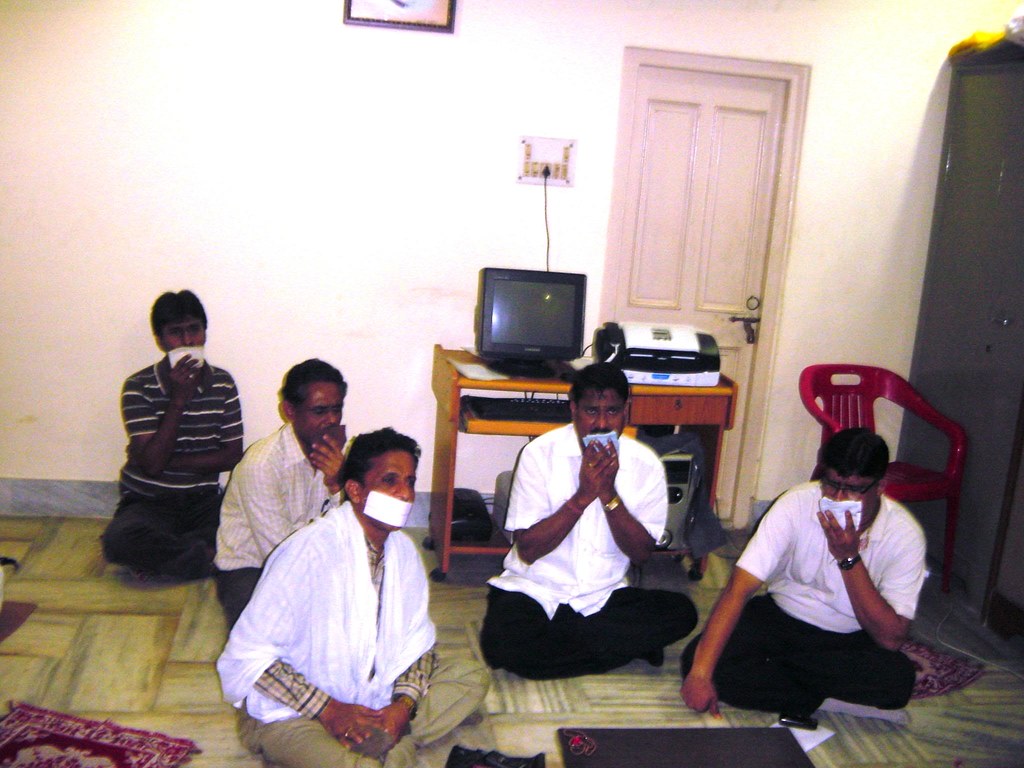 South howrah memmbers in namokar mantra jaap
South howrah memmbers in namokar mantra jaap
In the evening a unique Antakshari competition-‘Abhinaw Anthakshari ’- on spiritual and religious songs was organized by South Howrah Sabha with more than 50 participants. The programme was directed by Sadhvi Madhulataji with her untiring effort. Sri Madan Nahata, Sri Basant Patawari (Both Joint Secretaries- South Howrah Sabha) co coordinated the programme in an interesting manner. The winners were given prizes. Lay followers from all over the greater Kolkata took active participation in the day’s programme.